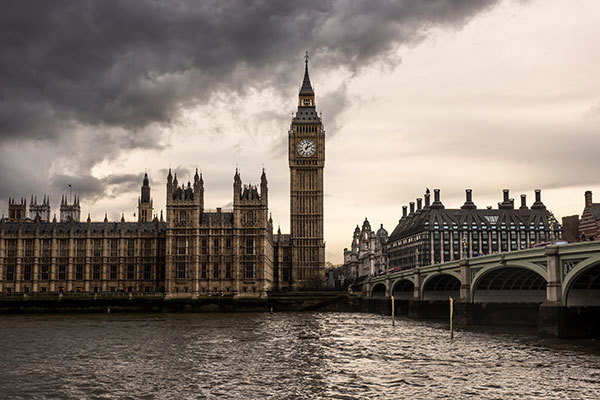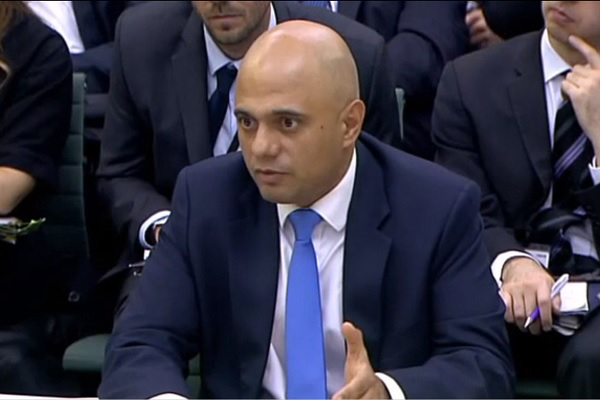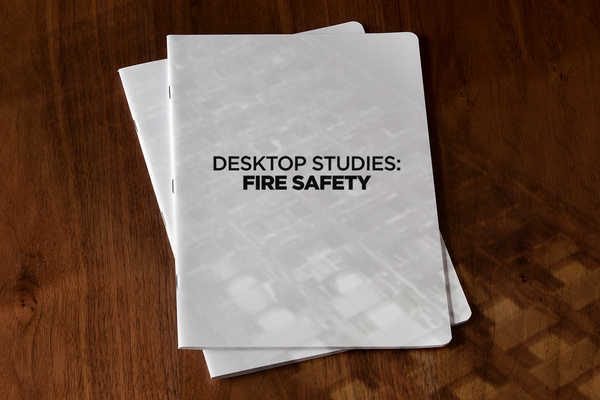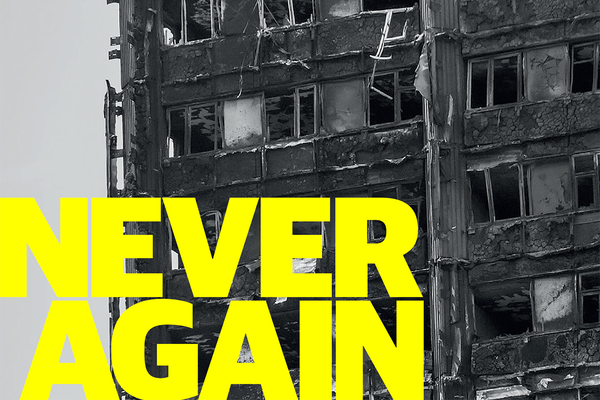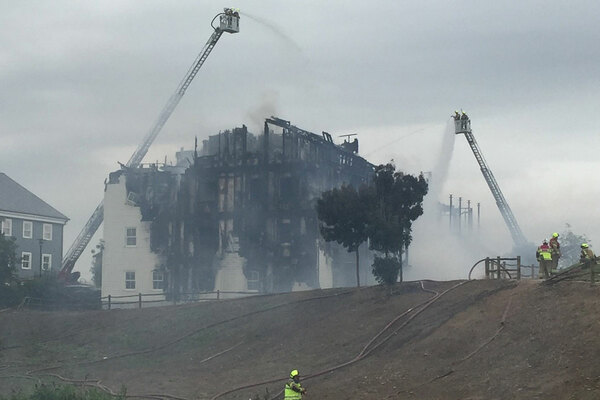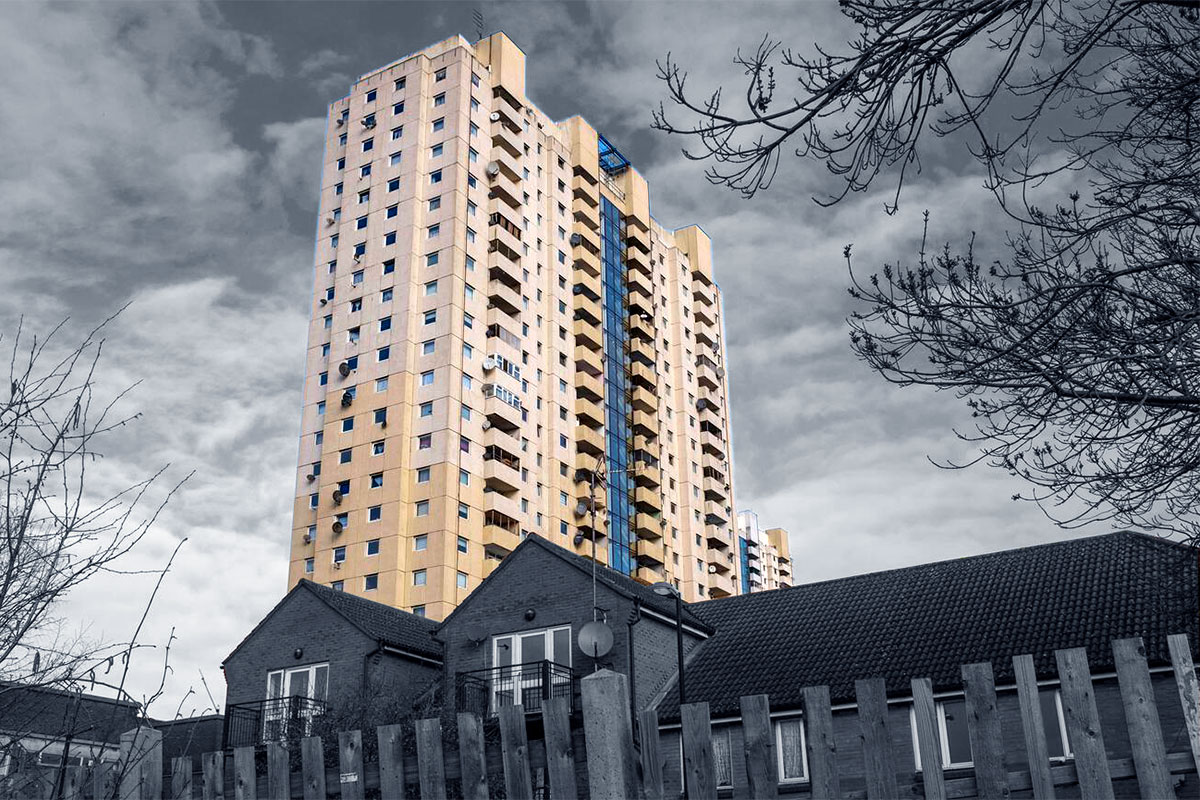You are viewing 1 of your 1 free articles
Government submission to EU does not include desktop studies ban for fire safety testing
The government has submitted building regulation changes to the European Commission that do not include a ban on desktop studies for fire safety testing of materials, despite currently consulting on this option.
Last week the Ministry of Housing, Communities and Local Government (MHCLG) launched a consultation into the use of desktop studies, and for the first time housing secretary Sajid Javid said the government would consider a complete ban on the use of these studies when assessing fire safety of materials.
This followed pressure from experts and nearly 50 MPs who warned in a letter to Mr Javid that introducing specific guidance on the use of desktop studies would be a “dangerous weakening” of building regulations.
The government has denied that desktop studies guidance is being introduced for the first time. Mr Javid has said the use of desktop studies is a “long-established part of the system for classifying the fire performance of construction products and systems, and not just in the UK”.
In a submission to the European Commission the government said the changes to the building regulation guidance would “clarify the existing text and create new requirements for assessments in lieu of fire tests.” There is no mention of a ban.
A MHCLG spokesperson said this is “draft text” and will be “modified as necessary following the consultation”. The spokesperson said there is a three month period for giving notice of a change to regulations.
Desktop studies are used to make assumptions about how new combinations of combustible materials will perform in a fire safety test, without having to carry out a full test. Experts have criticised their use and previous desktop studies have signed off on the use of cladding on tower blocks that has later failed fire safety tests.
In Dame Judith Hackitt’s interim review of building regulations and fire safety, she recommended significantly restricting the use of desktop studies.
Despite consulting on banning desktop studies, an impact assessment published alongside the consultation contained no mention of a ban and the only options that were assessed were to publish amendments to the guidance to toughen up the use of desktop studies or to do nothing and keep the regulations as they are.
A MHCLG spokesperson said: “We are consulting on restricting or banning the use of desktop studies. We are required to notify the EU with draft text for changes to technical regulations. The draft text reflects the recommendations of Dame Judith Hackitt’s interim report but it will be modified as necessary following the consultation.”
What are desktop studies, and why are people concerned?
Building regulations say cladding systems which contain combustible insulation must be shown to meet specific standards based on “full scale test data”
A ‘desktop study’ is a means of making an assumption about whether or not a cladding system would meet these standards without actually testing it.
It involves using data from previous tests of the materials in different combinations to make assumptions about how it would perform in a test.
This is not specifically provided for in the current guide to building regulations, but the government believes they are loosely drafted to an extent which makes it permissible. It plans to redraft the guidance to include specific rules on the use of desktop studies for the first time.
The alternatives to a desktop study are full scale testing or not using combustible materials.
People are concerned about the process because it is based on assumption: at least one system cleared through a desktop study has failed a full scale test.
This is important for fire safety because mistakes may mean unsafe cladding systems being cleared for use on tall buildings.
The Paper Trail: The Failure of Building Regulations
Read our in-depth investigation into how building regulations have changed over time and how this may have contributed to the Grenfell Tower fire:
Never Again campaign
Inside Housing has launched a campaign to improve fire safety following the Grenfell Tower fire
Never Again: campaign asks
Inside Housing is calling for immediate action to implement the learning from the Lakanal House fire, and a commitment to act – without delay – on learning from the Grenfell Tower tragedy as it becomes available.
LANDLORDS
- Take immediate action to check cladding and external panels on tower blocks and take prompt, appropriate action to remedy any problems
- Update risk assessments using an appropriate, qualified expert.
- Commit to renewing assessments annually and after major repair or cladding work is carried out
- Review and update evacuation policies and ‘stay put’ advice in light of risk assessments, and communicate clearly to residents
GOVERNMENT
- Provide urgent advice on the installation and upkeep of external insulation
- Update and clarify building regulations immediately – with a commitment to update if additional learning emerges at a later date from the Grenfell inquiry
- Fund the retrofitting of sprinkler systems in all tower blocks across the UK (except where there are specific structural reasons not to do so)
We will submit evidence from our research to the Grenfell public inquiry.
The inquiry should look at why opportunities to implement learning that could have prevented the fire were missed, in order to ensure similar opportunities are acted on in the future.
More episodes of The Housing Podcast
Review of the year 2019
As the year draws to an end, The Housing Podcast team wraps up the last 12 months, battles it out in a housing quiz, and looks ahead to 2020.
What did the Grenfell Inquiry phase one report say?
This week, Sir Martin Moore-Bick published his Phase One report from the public inquiry into the Grenfell Tower fire in June 2017. The 838-page report focuses on the events of that dreadful night: how the blaze started, how it spread so ferociously through the building, and how organisations including the emergency services responded.
Sir Martin has also produced recommendations aimed at preventing similar disasters from happening again. Our team has spent the last few days picking through the report, and in this episode of The Housing Podcast, we discuss the key points.
As Boris Johnson takes over at Number 10 Downing Street and appoints his new cabinet, the Housing Podcast team present their first ever 'emergency' episode, looking at whether he is set to shift the housing policy dial back towards home ownership.
The Homes Fit for Human Habitation Act is on the statute book. But what is it for? What does it do? And will it work?
Karen Buck MP, who guided the bill through parliament, along with housing lawyers Giles Peaker and Justin Bates – who wrote it – sit down with The Housing Podcast to answer all this and more.
Theresa May scraps the cap: what does it mean?
To the delight of councils across the country, Theresa May announced this week that she will scrap the Housing Revenue Account borrowing cap.
With the help of Eamon McGoldrick of the National Federation of ALMOs, in this week’s episode of The Housing Podcast we discuss the history of this contentious area of housing policy and look at what happens now.
The true cost of homelessness
Inside Housing has conducted in-depth research into the amount councils are spending on temporary accommodation for homeless people, with shocking results.
In this episode of The Housing Podcast, we take a look at the financial aspect of homelessness and discuss the figures with Matt Downie, director of policy and external affairs at Crisis.
Rating the Social Housing Green Paper
The Housing Podcast team is joined by David Pipe from the Chartered Institute of Housing and housing columnist Jules Birch to rank the proposals in the Social Housing Green Paper out of 10. Edited by Luke Barratt.
Listen or download here:
The supported housing saga
The government’s announcement this week that it will drop plans to change the way supported housing is funded brings to a close a nearly three-year cycle of lobbying against these proposals.
This week, The Housing Podcast looks back at this story, which began with a throwaway line in George Osborne’s Autumn Statement in 2015.
A brief history of council housing
In this week’s episode of The Housing Podcast we speak to John Boughton, social historian and author of Municipal Dreams: The Rise and Fall of Council Housing, about the five phases of local authority housing – starting in the East End of London in 1900.
Who has been the best housing minister since 2010?
The Housing Podcast team gets together to rank all the housing ministers of the modern Tory era, from Grant Shapps to Dominic Raab. There are a lot of them. Edited by Luke Barratt.
Listen or download here:
The Hackitt Review
This week, Dame Judith Hackitt released the findings of her building regulations review, commissioned by the government in the wake of the Grenfell Tower fire last June.
Featuring an interview with Dame Judith, the team takes a look at what was in the report – and why some people were less than impressed.
